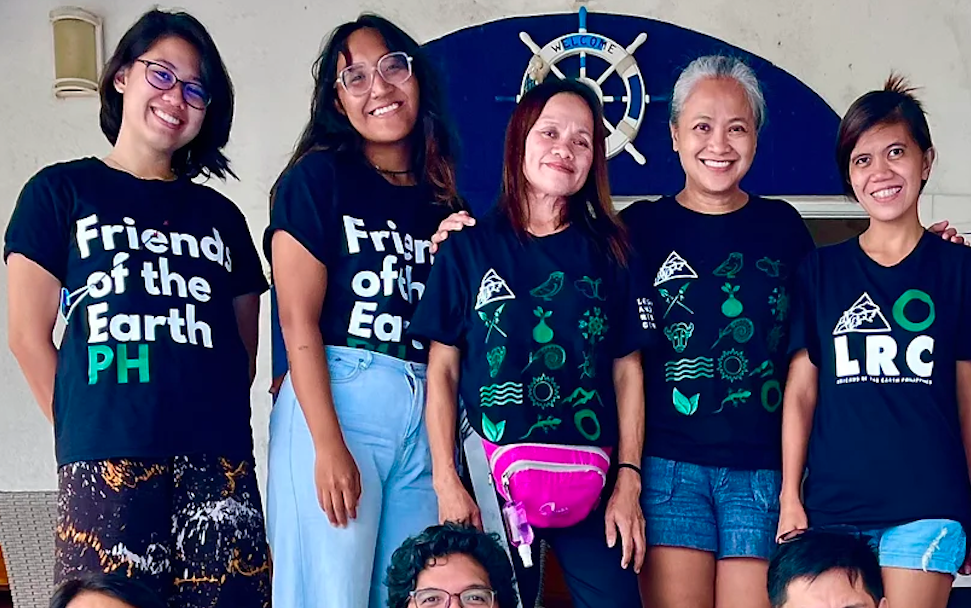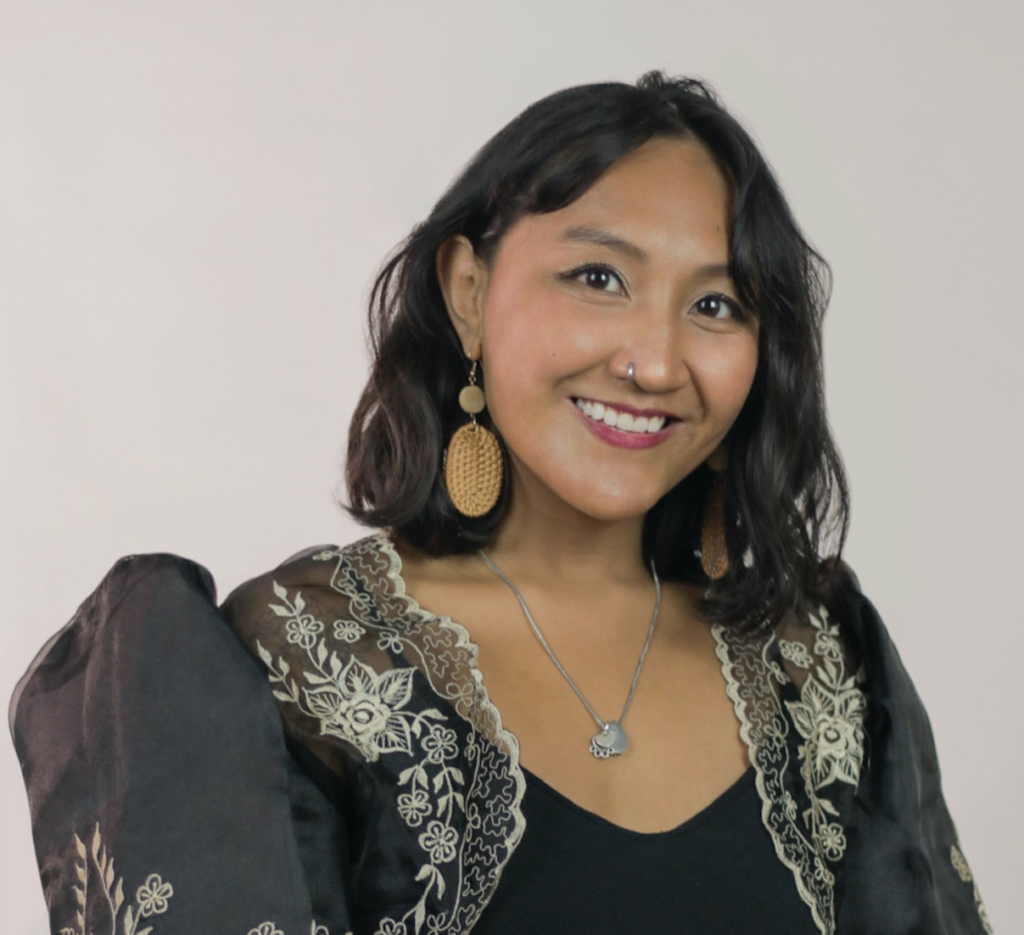
Interview with Joy Reyes, Friends of the Earth Philippines
Joy Reyes is a climate justice lawyer in the Philippines working for the country’s Friends of the Earth affiliated organization, the Legal Rights and Natural Resources Centre (LRC). She is currently in Scotland to study her Master’s in Global Environment, Politics and Society at the University of Edinburgh.
We spoke to her to find out more about her work in the Philippines and how she’s finding climate activism in Scotland so far.

What work do you do for Friends of the Earth Philippines (LRC)?
Back home, I am affiliated with the Manila Observatory (MO) as the Technical Advisor for Conventions of the Klima Center. I am also a staff lawyer at the Legal Rights and Natural Resources Center (LRC), which is the Philippines chapter of Friends of the Earth. As a Center, LRC works for the recognition and protection of the rights of indigenous peoples and upland rural poor communities, with campaigns on indigenous peoples’ rights, human rights, natural resources, just energy transition, and climate justice.
As a staff lawyer, I work on policy papers about indigenous peoples rights and climate justice, as well giving Know Your Rights seminars to indigenous peoples. I have also helped in drafting the KLIMA Bill, a draft legislation currently with the Committee on Climate Change of the Philippines House of Representatives, which aims to hold corporations accountable for their human rights violations, among others, and which will create the Climate Change Victims Fund.
Can you tell us about the main campaigns or workstreams of Friends of the Earth Philippines (LRC)? Do these reflect the main climate/environmental issues there?
Aggressive development remains to be one of the biggest issues in the Philippines, as well as the increase of resource extractive industries. Mining remains rampant, despite calls from environmentalists to stop the industry. For the 10th year in the row, the Philippines has been identified as the most dangerous country in Asia for land and environmental defenders, and it is consistently ranked in the worst three in the world.
Our work aims to target all of these issues. We serve as legal counsel for marginalised and poor communities, especially those that question these industries, such as in Tampakan, the largest open-pit mine project in Asia.
In 2020, before I officially joined the Center, LRC and MO represented indigenous peoples from all over the country to challenge the constitutionality of the Anti-Terror Law passed by the Duterte government.
LRC has also pushed for the passage of the Alternative Minerals Management Bill, which proposes a transformation of the current way we understand the minerals regime by balancing the need for these minerals with environmental, social, and economic considerations. The bill, like KLIMA, is anchored in climate justice, and proposes solutions that are just and equitable. LRC also works on the protection of watersheds and forests, just energy transition, and loss and damage.
Can you tell us about a major victory in your organisation’s work or a campaign that you are very proud of?
The ability of LRC to elevate and promote the voices and rights of indigenous peoples in the country has always been something that I have been immensely proud of – we have provided support from indigenous communities all over the country. Perhaps one of the most striking of LRC’s campaigns is the annual State of the Indigenous Peoples Address, which comes after the President’s yearly State of the Nation Address. It brings together indigenous peoples from all over the country where they can consolidate their concerns and forward their calls to the government.
While I have never been to the address in-person due to COVID restrictions, I have been able to join online in two of them, and it is always a wonderful annual show of solidarity and allyship. It is also a great time to bring together our indigenous community partners, celebrate the successes of the year, share our collective grief, and discuss ways to move forward together.
Have you been involved in any climate action here in Scotland? What are the differences in climate campaigning between Scotland and the Philippines?
Yes! I joined the Edinburgh Global Day of Action Against Fossil Fuels, as well as a protest after the approval of Rosebank by the UK government. I plan to be more active in the climate action sphere in Scotland, and also plan to continue to do my work on amplifying the voices of the global South while I’m here.
Security has been an interesting, and I think the starkest, difference. Protesting in the Philippines remains dangerous, with law enforcers asking intrusive, personal questions. Sometimes, they would even take photos or videos of the protesters, which leave a chilling effect on protesters in a country that does not take kindly to dissent.
Thankfully, this has not stopped protesters – mostly Filipino youth – from voicing their concerns on the streets; however, I wish it were safer to exercise this democratic right. It has meant that any decision to protest requires plenty of risk assessment, which means that protesting – ideally an intergenerational collective get-together (as I have seen here in Scotland) – becomes a risky undertaking; yet it feels… not right to not partake. The Philippines also has the highest ranking for climate anxiety among the youth, and it is in protesting, advocating, and campaigning that I think we each find our individual and collective strengths to continue the work.
